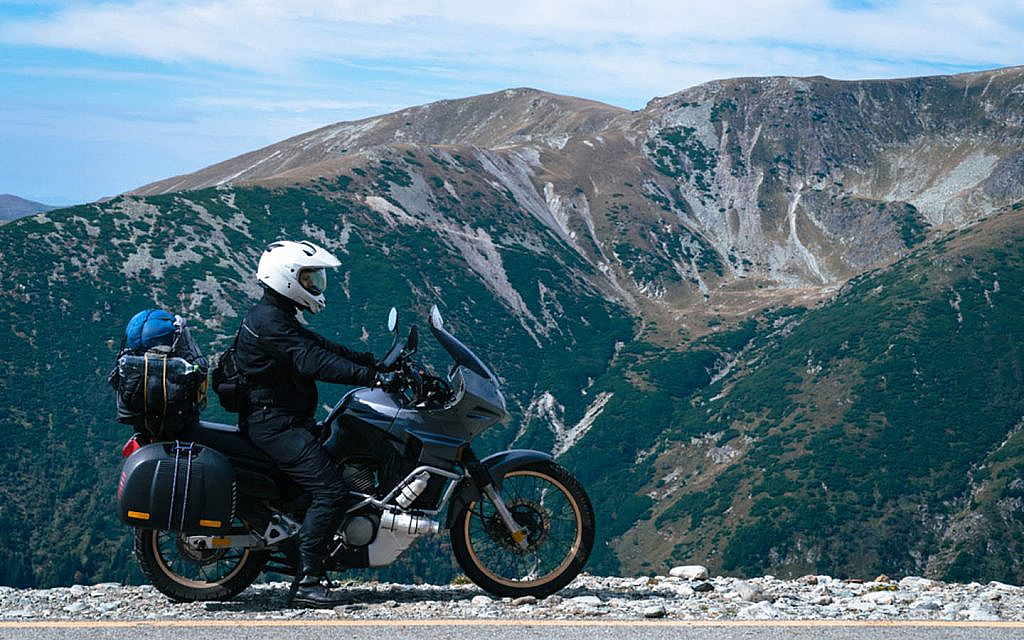Before revving your engine, familiarize yourself with the UAE’s traffic laws. Riders must be at least 21 years old and possess a valid motorcycle license from their home country or an Emirates ID-linked UAE license. Tourists can use international licenses from approved countries, but those from non-reciprocal nations need a temporary UAE permit. The Roads and Transport Authority (RTA) mandates third-party liability insurance, which most rental companies bundle into packages. Pro tip: Check the Dubai Police app for real-time traffic fines; even minor violations like lane splitting attract AED 600 penalties.
Choosing the Right Rental Company: Licensed vs. Informal Providers
Stick to RTA-approved operators like Rent a Bike Dubai or Wheels for Rent, which maintain fleets of Harley-Davidsons to Ducatis. These companies handle registration (Mulkiya) and annual inspections, crucial for avoiding impoundments. Avoid social media “garage rentals” offering cheaper rates—their bikes often lack proper insurance, leaving you liable for accidents. Insider note: Many premium providers like BMW Motorrad Dubai offer GPS-enabled bikes with emergency roadside assistance, perfect for desert excursions.
The Step-by-Step Rental Process Demystified
Start by comparing rates on platforms like Dubizzle or GetTransfer, but always visit the physical office to inspect bikes. You’ll need your passport, visa copy, license, and a credit card for the security deposit (typically AED 2,000–5,000). Rental contracts specify mileage limits—exceeding 200 km/day might incur extra charges. Before signing, photograph existing scratches and confirm repair cost policies. Hot tip: Weekday rentals (Sunday-Thursday) are 20-30% cheaper than weekends, per Dubai Tourism data.
Cost Considerations Beyond the Daily Rate
While base rates start around AED 250/day for a 300cc bike, hidden costs add up. Salik (toll gate) fees average AED 4 per pass, automatically deducted via the bike’s tag. Parking in paid zones like Downtown Dubai costs AED 2-10/hour. Fuel prices fluctuate monthly (currently ~AED 3.42/liter for Super 98), and desert rides guzzle 30% more petrol. Always budget for a security deposit hold on your card—it’s released 7-14 days post-return if no fines surface.
Safety Gear and Customization Rules
Dubai enforces strict helmet laws, and rentals must provide ECE 22.05-certified helmets. Riders often overlook the mandatory reflective vest rule—failure to wear one risks AED 500 fines. Modifications like exhaust upgrades are illegal without RTA approval, and neon underglow lights attract police attention. For group rides, note that convoys exceeding 10 bikes require a pre-approved NOC from Dubai Police.
Navigating Cultural Nuances and Route Etiquette
While Dubai’s roads are modern, cultural awareness matters. Avoid honking near mosques during prayer times, and never park in designated family spots (pink signage). The Friday morning “quiet hours” (7-9 AM) near residential areas like Jumeirah demand reduced engine noise. Off-road adventures in Al Qudra? Stick to marked dunes—straying into protected areas incurs AED 10,000+ fines.
Seasonal Factors Affecting Rentals
Peak season (October-April) sees rates spike by 40%, with popular models like the Honda Gold Wing booking out weeks ahead. Summer rentals (June-August) offer discounts but require heat prep—hydration packs and UV-protective gear are lifesavers. Ramadan brings shorter rental windows; most companies close by 6 PM during the holy month.
Insurance: What’s Covered and What’s Not
Basic policies cover third-party damage and theft, but exclude “off-road incidents” common in desert rides. Upgrade to comprehensive insurance (AED 50-100/day) for personal accident coverage and gear protection. Key exclusion: Damage from riding in prohibited areas like Jebel Jais’s summit road voids all claims. Always request the policy’s Arabic/English dual-language document.
Where to Ride: Approved Routes vs. No-Go Zones
Stick to RTA-approved roads—Sheikh Zayed Road allows bikes, but Al Khail Road’s truck lanes are off-limits. Scenic routes like Hatta-Oman Road (E44) require advance permits from Hatta Visitor Centre. Forbidden zones include the Dubai Metro tracks and residential communities like Emirates Hills. Use the RTA Dubai app’s “Motorcycle Routes” filter for real-time approved paths.

Handling Accidents and Breakdowns
If an accident occurs, dial Dubai Police (999) immediately—moving vehicles before authorization invalidates insurance. Rental companies must provide 24/7 support; reputable ones like Harley-Davidson Dubai deploy mechanics within 90 minutes. For breakdowns on highways, place the emergency triangle 50 meters behind the bike to avoid AED 1,000 fines.
Return Protocols and Avoiding Deposit Disputes
Return the bike with a matching fuel level (most require a full tank) and allow a joint inspection. Delays incur hourly charges (AED 50-100), so factor in traffic—Dubai Marina to Al Maktoum Airport can take 90+ minutes. Disputes over damages? Escalate via the Dubai Consumer Rights portal; they typically resolve cases in 7-10 days.
Why Renting Beats Owning for Short-Term Riders
With annual registration (AED 350), mandatory agency fees (AED 500), and depreciation rates of 20% yearly, short-term visitors save significantly by renting. Monthly rentals (AED 4,000-7,000) include free maintenance, unlike ownership’s hidden costs. Plus, rental fleets upgrade models biannually—you’ll ride the latest BMW R 1250 GS without long-term commitment.
Prepared by the www.few.ae Editor
Dubai’s motorbike rental scene combines adrenaline with strict regulations—arm yourself with these insights, and you’re set for an unforgettable ride across futuristic cities and timeless dunes.
